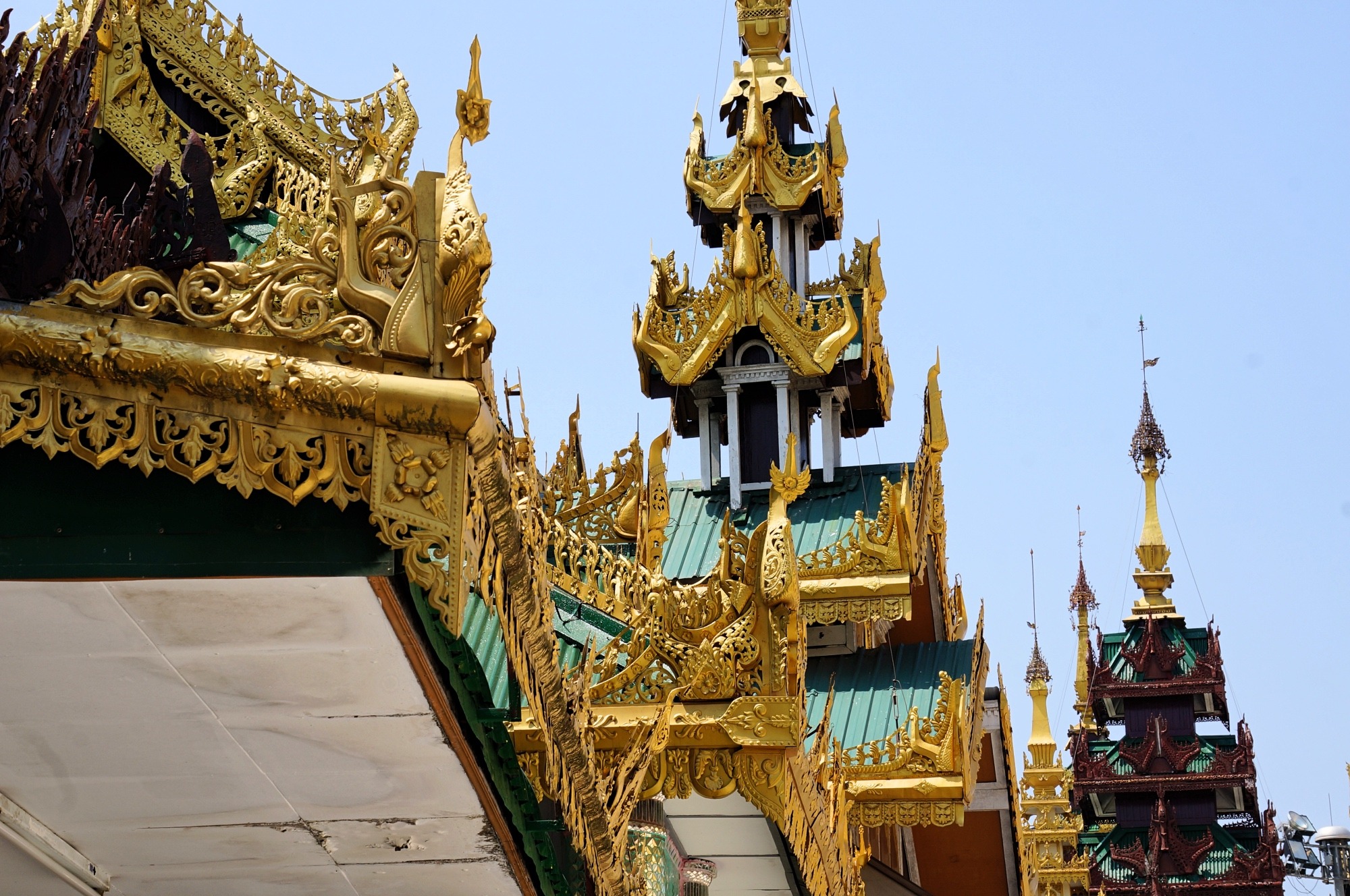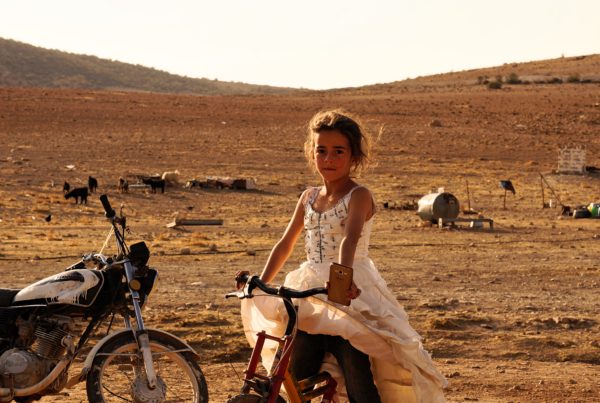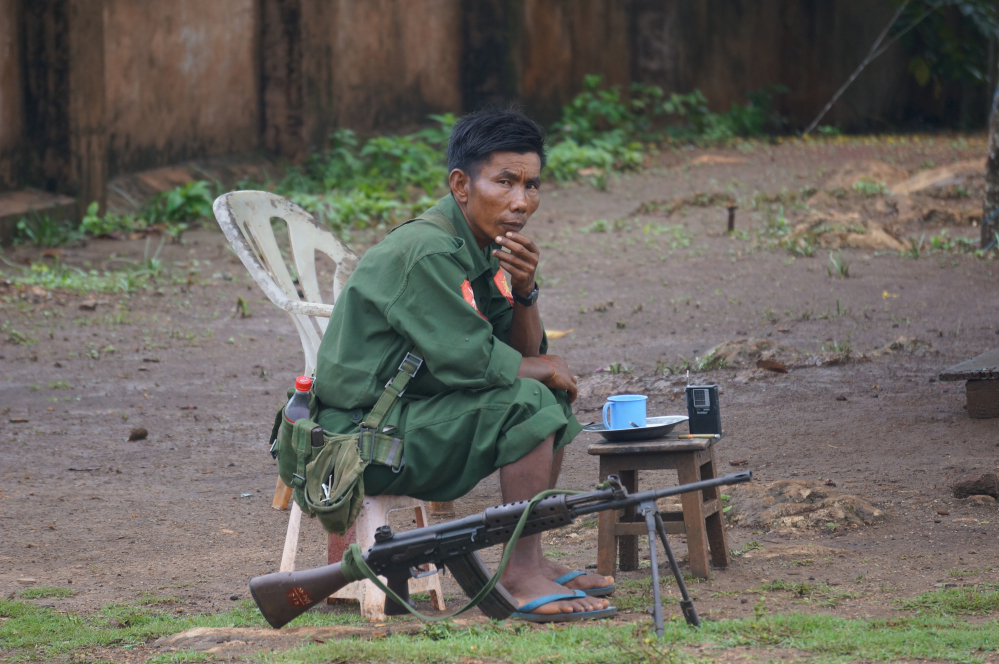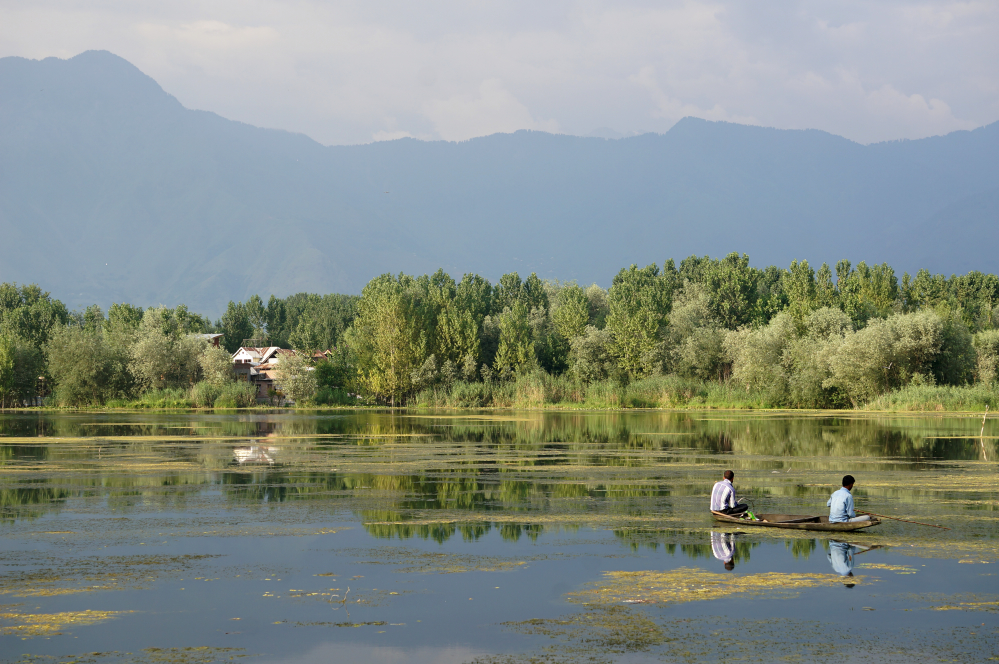Lovers hold hands under palm trees on the banks of the Inya Lake in Yangon. Groups of women in long htamains protected by floral parasols walk the coastal road of Sittwe looking out across the Andaman Sea. Painters sell sunset canvases on the steps of temples in the ancient city of Bagan. Determined Buddhists hop, skip and jump across burning tiles at midday in the 2,600-year-old Shwedagon Pagoda in Yangon. Novice monks draped in maroon kick a tennis ball in the shade of a monastery in Lashio. Men stripped to just their longyi, wrapped to form a loin cloth, play caneball in the streets of Hpa An, avoiding tuk tuks and rickshaws. Groups of men chew on araca nut wrapped in betel leaves, and spit the red juice off the U Bein Bridge in Mandalay. It is incredible how peaceful some parts of a country can be when such turmoil exists in other parts.
I have travelled to Burma with two specific destinations in mind: I hope to learn about the Rohingya situation in Rhakine state and I have volunteered to assist an ethnic community group called the Ta’ang Student Youth Union in Shan state. First, I must pass through Hpa An, a riverside city of noisy bazaars, on my way to Burma’s major city, Yangon. In Hpa An, I see mosques attended by white-robed, white-hatted men. I join kids who play football barefoot in the courtyard of a Buddhist temple and caneball is played in the dirty streets by bare-footed, bare-chested men. The sun sets over a Buddhist temple on the riverfront. That night I sleep in a small room big enough for a single bed and fall asleep to hooting horns.
You might be wondering why I keep referring to the country as Burma and not Myanmar. Allow me to explain: the country was named Burma by the British in the 18th century, but the military junta changed its name to Myanmar (and Rangoon also became Yangon) in 1989; a year after thousands were killed in the junta’s suppression of a popular uprising. Those who object to the term ‘Myanmar’ do so because they do not recognise the junta’s right to re-name the country.
When I arrive in Yangon, the Buddhist Festival Thingyan is about to commence and the country is closing down for the celebrations. Thingyan is otherwise known as the Water Festival and, from what occurs in Yangon, you wouldn’t know it has any relation to something sacred. Stages known as pandals are set up along two of Yangon’s major avenues, Kadawgyi Pet and Kabaraye Roads. During the celebrations, pick-up trucks with open trays full of people dancing and drinking drive around the streets and throw water on each other. Each pandal is equipped with water jets to hose people on the streets. Within the pandals raucous parties full of young Burmese people drinking and dancing take place. The streets reverberate with the sound of electronic music for days.
I spend the Water Festival with an Australian friend associating with the upper class of Yangon. I stay in an apartment complex with a pool and a sauna in the rich part of town and I feel like I’m in a different world to the Burma I have seen thus far. I meet businessmen, entrepreneurs, and the children of the military and I see that there is opportunity in Burma for the wealthy locals and foreign investors. Economic sanctions are being lifted and businessmen in Yangon are sniffing around a country rich in resources for their chance to make a profit. It is people from among this group who tell me, ‘Burma is fine’.
I leave Yangon in the midst of the Water Festival. Buses are not in operation so I wake up early to catch the 14-hour train to Mandalay. When I arrive at the ticket office I am told there are no ‘upper class’ tickets left. My only option is to travel by ‘ordinary’ class, a 2,400 Kyat (A$2.60) ticket with a 51 Kyat life insurance policy. I find my seat on a bench with a family of five including two young girls. I nestle in side-by-side with an elderly woman and we look at each other and smile. People sit in the aisles; children sleep on bags of earth and onions. The carriage sways violently and the bench is rock hard. My initial discomfort and self-pity is soon surpassed by a sense of community. I buy the girls snacks and they offer me their eggs and bananas. I taste a disgusting powder that is tapped into my hand by a wandering salesman and spit it out to the delight of the carriage. I apply a red medicine on my arms at the instructions of the mother and it feels like a heat gel. Men fall asleep at odd angles on the floor and children play with their heads out the carriage window. In the ordinary class there are people who can’t afford a sitting seat. The world of luxury in Yangon seems unreal as we rattle and bump our way to Mandalay.




Remembering the same storm backed train ride -thanks for the banana!